Sugar: Five surprisingly sugary foods and drinks that are compromising your health
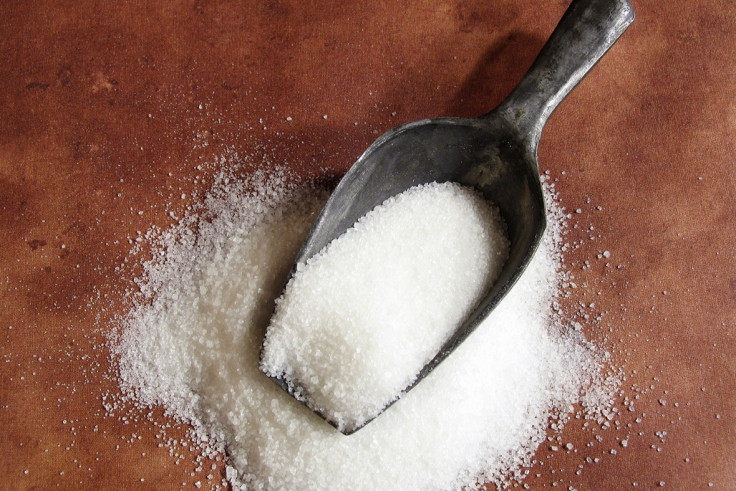
Millions of Britons are putting their health at risk by consuming high street cafe hot drinks which contain a "shocking" amount of sugar, a charity has warned.
Action on Sugar found 98% of 131 hot-flavoured drinks analysed would receive a "red" label for excessive levels of sugar per serving - and found more than a third contained the same amount or more sugar than a can of Coca Cola.
Starbuck's Hot Mulled Fruit (grape with chai, orange and cinnamon venti) was the worst offender, containing more than three times the maximum daily intake for adults with 25 teaspoons.
Bottled smoothies
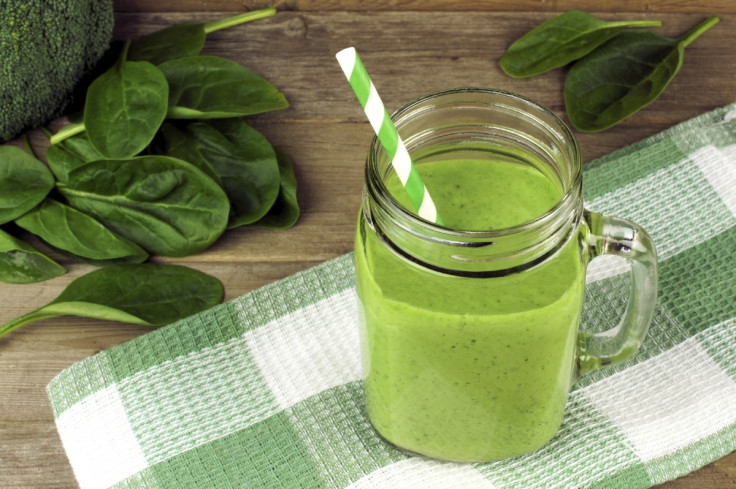
Although they appear as a quick and easy way to get your five-a-day, smoothies contain a large amount of sugar. A 250ml serving of the pomegranate, blueberries and acai smoothie by Innocent - a company which is over 90% owned by Coca Cola - contains 33g of sugar. By comparison, a 330ml can of full-fat Coca Cola contains 35g of sugar.
The smoothie counts as two out of your five-a-day, but nutritionists argue that the high fructose sugar content can put pressure on your liver. Moreover, the fibre content of the fruit has been heavily processed in the pulping process that the full sugar load is quickly absorbed by the body.
Flavoured water
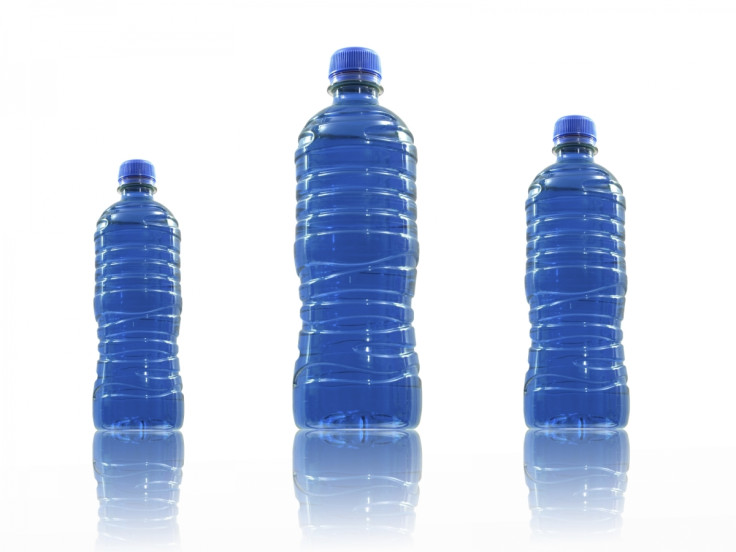
Although the health-conscious have cut back on fizzy drinks, the market for flavoured water has boomed. It is worth checking the back of these healthy-looking products because they often contain large amounts of the white stuff - and very little fruit juice.
For example, This Juicy Water (Oranges and Lemons) contains 8.7g of sugar per 100ml - which is roughly nine teaspoons of sugar per 420ml bottle. One serving of this drink contains 25% fruit juice.
Cereal
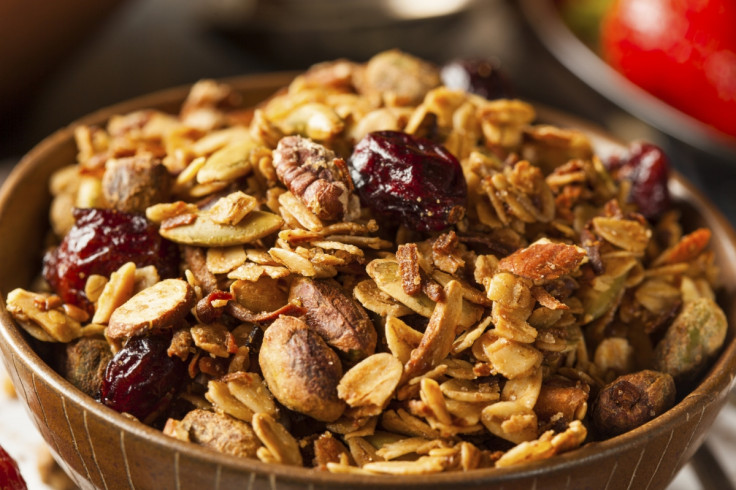
We know that a lot of the brightly-coloured boxes of cereals in our supermarkets contain a lot of added sugar - but even the cereals that appear healthy can be misleading. Although muesli contains fibre, it still has a high sugar content. A 45g serving of Alpen Original Muesli contains 10g of sugar.
A study published in January 2015 found the amount of sugar in children's breakfast cereal has risen by as much as a third over the previous three years. A small bowl of some of the most popular brands contains three teaspoons of sugar, equivalent to around two-and-a-half chocolate biscuits.
Alcohol
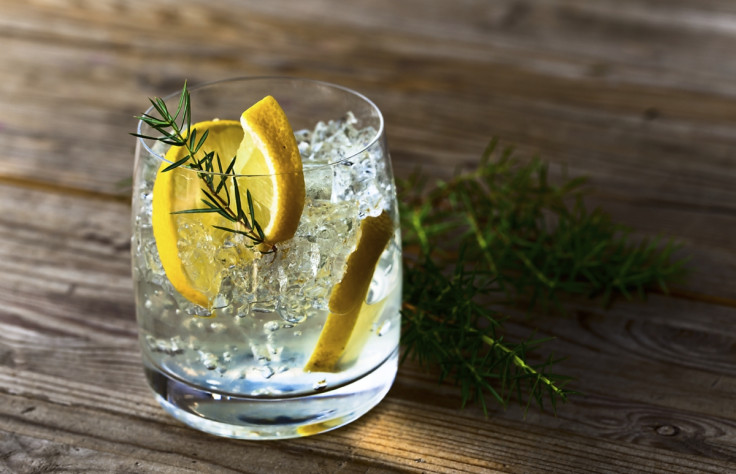
We all know alcohol is not exactly good for you - but our favourite boozy drinks contain surprisingly large amounts of sugar. According to the NHS, 11% of our daily intake of added sugar comes from alcohol.
Mixers for spirits are often high-sugar culprits. Even a gin and tonic - made with standard tonic water - contains roughly 18g of sugar. At roughly four teaspoons, it amounts to more than a third of your daily sugar intake. All of the sugar comes from the tonic.
Low-fat yoghurts
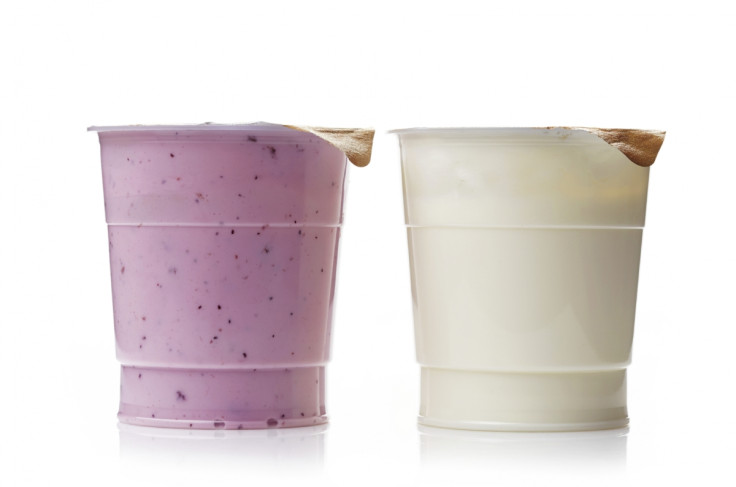
Although dairy products like yoghurt and cheese contain lactose - milk sugar - they also contain calcium and protein as part of a healthy diet. Some low-fat varieties contain added sugar to improve the taste when we take the fat out, however. The end product is a low-fat yoghurt which is still high in sugar and calories.
Danone Oykos strawberry yoghurt contain around 15.4g (17% of your GDA) per 110g pot. A 100g serving of Fage Total 0% Fat Greek Honey yoghurt contains 18.8g of sugar.
© Copyright IBTimes 2024. All rights reserved.






